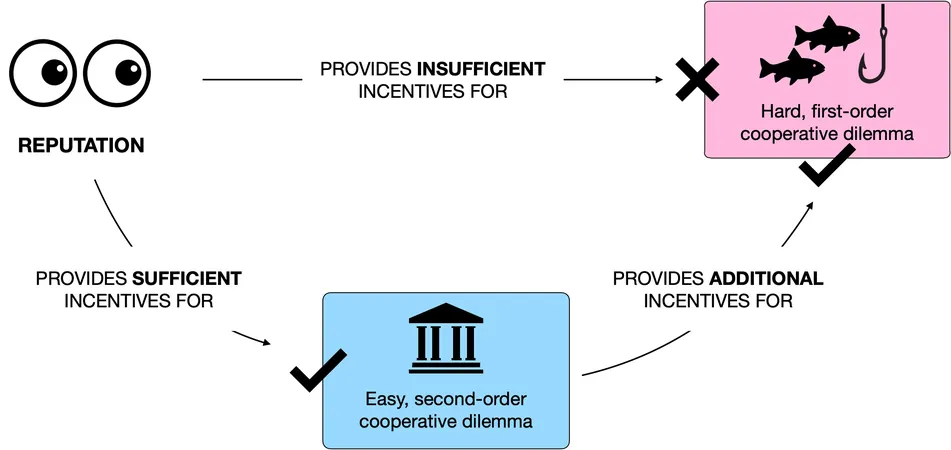
Shocking Study Reveals How AI Biases Could Be Making YOU More Prejudiced!
2024-12-18
Author: Amelia
Groundbreaking Study from UCL
A groundbreaking study from researchers at UCL has unveiled a startling truth: artificial intelligence (AI) systems are not only reflecting human biases but escalating them, potentially making users more prejudiced in their thoughts and decisions. This troubling discovery, published in the esteemed journal Nature Human Behaviour, sheds light on the dangerous feedback loop between human biases and AI.
Insights from Professor Tali Sharot
Professor Tali Sharot, one of the study's co-lead authors, elaborated on the findings: 'Humans are inherently biased. When we train AI systems on datasets created by humans, these algorithms learn and amplify the embedded biases.' As a result, these AI systems may boost their predictions' accuracy but at the expense of increasing biases within the users themselves.
The Study's Profound Implications
The implications of these findings are profound, as the researchers discovered that interactions with biased AI led individuals to grossly underestimate the capabilities of women while overemphasizing the prospects of white men in high-status roles. This demonstrated that even minor biases can cascade into significant errors in judgment.
Experiment Methodology and Results
In a series of experiments involving over 1,200 participants, researchers explored how biases manifest during AI interactions. Initially, participants judged the emotional expressions of faces in photographs. An AI trained on their responses amplified their initial bias, leading to even greater inaccuracies in subsequent assessments.
The ramifications were further highlighted in scenarios where individuals were told how a biased AI had judged the same set of faces. This resulted in users internalizing the AI’s biased perspectives, demonstrating a concerning cycle where AI not only recognizes human biases but escalates them.
Experiments varied in context, including tasks assessing motion direction and performance evaluations. Notably, after interacting with a biased AI, participants were significantly more likely to inflate the performance expectations of men. Alarmingly, many of these individuals were oblivious to the extent of the AI's influence on their judgments.
The Role of Generative AI
An additional experiment involved the popularly used generative AI system, Stable Diffusion. When researchers prompted the AI to create images of financial managers, the algorithm overrepresented white males. As participants viewed these biased images, their inclination to select white men as likely financial managers rose, underscoring how pervasive AI bias can shape societal perceptions.
Concluding Remarks from Researchers
Dr. Moshe Glickman, another co-lead author stated, 'This study shows a dual effect—biased people create biased AIs, and these AIs subsequently alter users’ beliefs, leading to increased prejudice in various areas, from social assessments to basic perceptions.' However, the research also reveals a silver lining: interacting with unbiased AIs can enhance people's judgments. Thus, refining these systems to eliminate biases is of utmost importance.
Call to Action for Ethical AI Development
As AI increasingly interweaves into our daily lives, the responsibility of algorithm developers has never been higher. 'The influence of AI biases could profoundly impact society,' warned Professor Sharot. The key takeaway? We must tread carefully and advocate for the ethical development of AI technologies to ensure a bias-free future.
Final Thoughts
Are we inadvertently allowing technology to shape our biases even more than human interactions? The stakes have never been higher as we navigate the complex relationship between AI and human judgement.









 Brasil (PT)
Brasil (PT)
 Canada (EN)
Canada (EN)
 Chile (ES)
Chile (ES)
 España (ES)
España (ES)
 France (FR)
France (FR)
 Hong Kong (EN)
Hong Kong (EN)
 Italia (IT)
Italia (IT)
 日本 (JA)
日本 (JA)
 Magyarország (HU)
Magyarország (HU)
 Norge (NO)
Norge (NO)
 Polska (PL)
Polska (PL)
 Schweiz (DE)
Schweiz (DE)
 Singapore (EN)
Singapore (EN)
 Sverige (SV)
Sverige (SV)
 Suomi (FI)
Suomi (FI)
 Türkiye (TR)
Türkiye (TR)